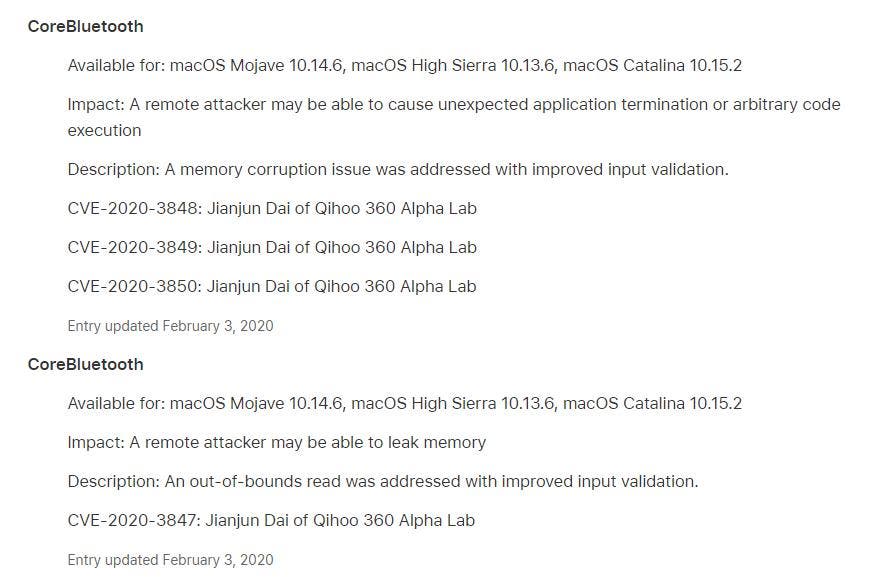Recently, Apple issued two consecutive security announcements, publicly thanking the 360 Alpha Lab team for discovering 5 MacOS Bluetooth vulnerabilities. This is an extremely rare combination of vulnerabilities in Apple’s macOS system, and it has been officially confirmed that all the vulnerabilities are “zero-click, no-touch” remote exploitation vulnerabilities.
This vulnerability danger cannot be ignored, the team of 360 Alpha Labs has informed Apple officials which released a patch based on the vulnerability report submitted by the 360 security team and awarded a vulnerability bonus of $ 75,000.
The 360 Alpha Lab team named it the “Bluewave” vulnerability. According to reports, the vulnerability exists in the Apple macOS Bluetooth process. This means that once an attacker breaks a device, he can use it as a center to attack the paired macOS device. The whole attack process spread like infinite waves.
It is worth mentioning that the “Bluewave” vulnerability exposed by Apple notebooks this time has a wide range of impacts, covering all Apple notebooks including macOS Mojave 10.14.6, macOS High Sierra 10.13.6, and macOS Catalina 10.15.2. 360 security experts recommend that users should upgrade as soon as possible to avoid vulnerability attacks.
macOS is more vulnerable than Windows
It is worth mentioning that the amount of malware on macOS is outpacing Windows for the first time ever, this is according to cybersecurity software company Malwarebytes’ latest State of Malware report. Specifically, They found an average of 11 threats per Mac devices, which is about twice the 5.8 average on Windows.
For the first time, Apple’s product has surpassed its Microsoft counterpart in this race. Considering an average of 4.8 threats published last year, we have seen a rather worrying increase.
Windows machines still dominate the market share and tend to have more security vulnerabilities, which has for years made them the bigger and easier target for hackers. But as Apple’s computers have grown in popularity, hackers appear to be focusing more of their attention on the versions of macOS that power them. Malwarebytes said there was a 400 percent increase in threats on Mac devices from 2018 to 2019.







